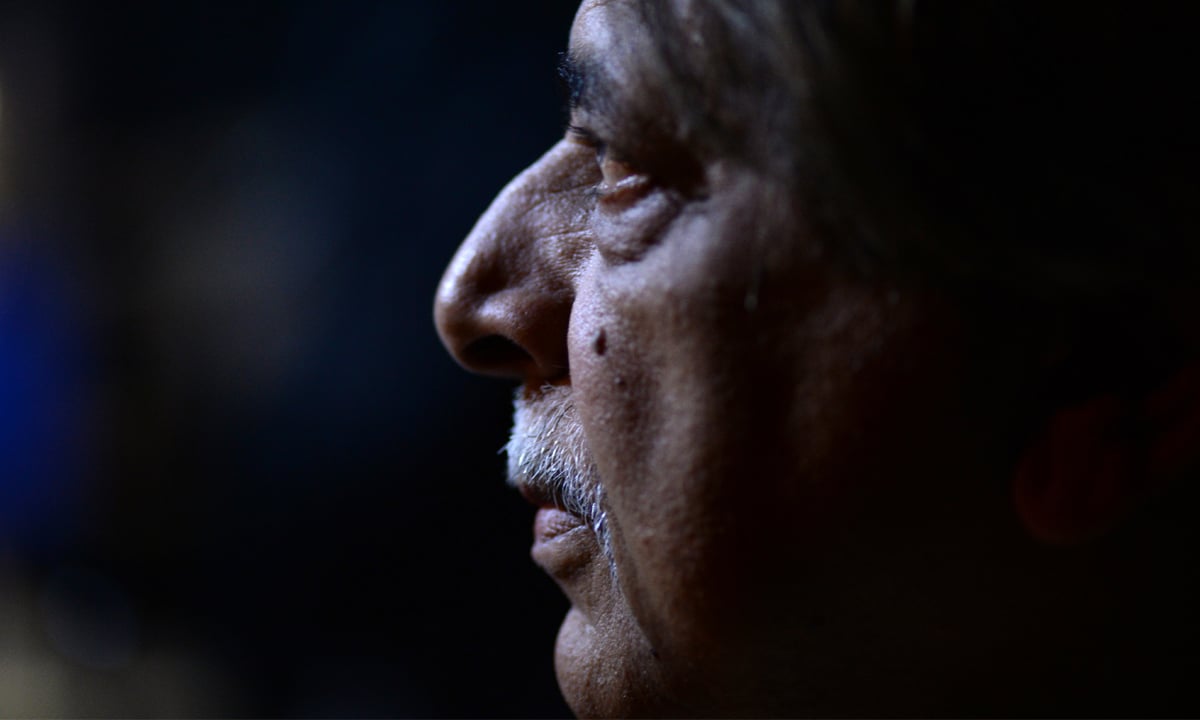by MUHAMMAD BADAR ALAM & ALIA AHMED
 Khalid Ahmed PHOTO/Arif Mahmood, White Star
Khalid Ahmed PHOTO/Arif Mahmood, White Star
Many artists, actors, singers and musicians who came of age in the 1970s are either nostalgic about what went before them or unhappy at the current state of performing arts in the country. This middle generation – a veritable bridge between the Partition-era past and the millennial present – has, indeed, witnessed monumental changes in the cultural and creative landscape of Pakistan, from one that prized excellence and gravitas to one that seeks success above all else and has no qualms about pandering to the popular. They have also seen irreversible changes in the mediums of artistic expression, from live performances to radio, and from television to digital platforms.
Khalid Ahmed and Arshad Mahmood are two very eminent members of this generation. They both started their career in the early 1970s. The former’s initial artistic forays were in theatre in Karachi; the latter’s first job was with Pakistan Television (PTV) in Lahore.
After General Ziaul Haq overthrew Zulfikar Ali Bhutto’s government in 1977, Mahmood shifted to Karachi to work with EMI, a recording company. He also continued composing music for television besides appearing as an actor in a number of TV serials. His compositions of Faiz Ahmed Faiz’s poetry, most famously sung by Nayyara Noor and Tina Sani, have won him national acclaim.
Ahmed was largely devoted to theatre throughout the 1980s, with occasional appearances on television. He joined Karachi-based activist groups that resisted Zia’s dictatorial regime through any means possible, including the performing arts.
Their work with television started dwindling from the 1990s onwards. It became even more infrequent after they joined the newly set up National Academy of Performing Arts (Napa) in Karachi in the early 2000s to work under the supervision of polymath and polyglot thespian Zia Mohyeddin.
Ahmed and Mahmood recently had a wide ranging conversation with a panel from the Herald. Excerpts follow:
Herald. Would it be correct to say that the performing arts, such as music and theatre, are experiencing a decline in Pakistan?
Arshad Mahmood. In Muslim culture in the Subcontinent, those from respectable, noble families did not indulge in such things as dance, music and theatre. Those who performed these arts usually came from the lower strata of society. The courts of rajas and maharajas used to have many musicians but hardly any raja himself became a musician or a dancer. There was almost no tradition for theatre.
Faiz Ahmed Faiz wrote a remarkable essay on Pakistani culture in which he said arts like singing, music and acting are practised here the way youngsters smoke — hiding it from their elders. There is an implicit understanding among the elders who know they are smoking, but will not say anything as long as it isn’t done in their presence. Similarly, people can dance, sing and act in Pakistan as long as they do not seek public support for it.
Herald for more
